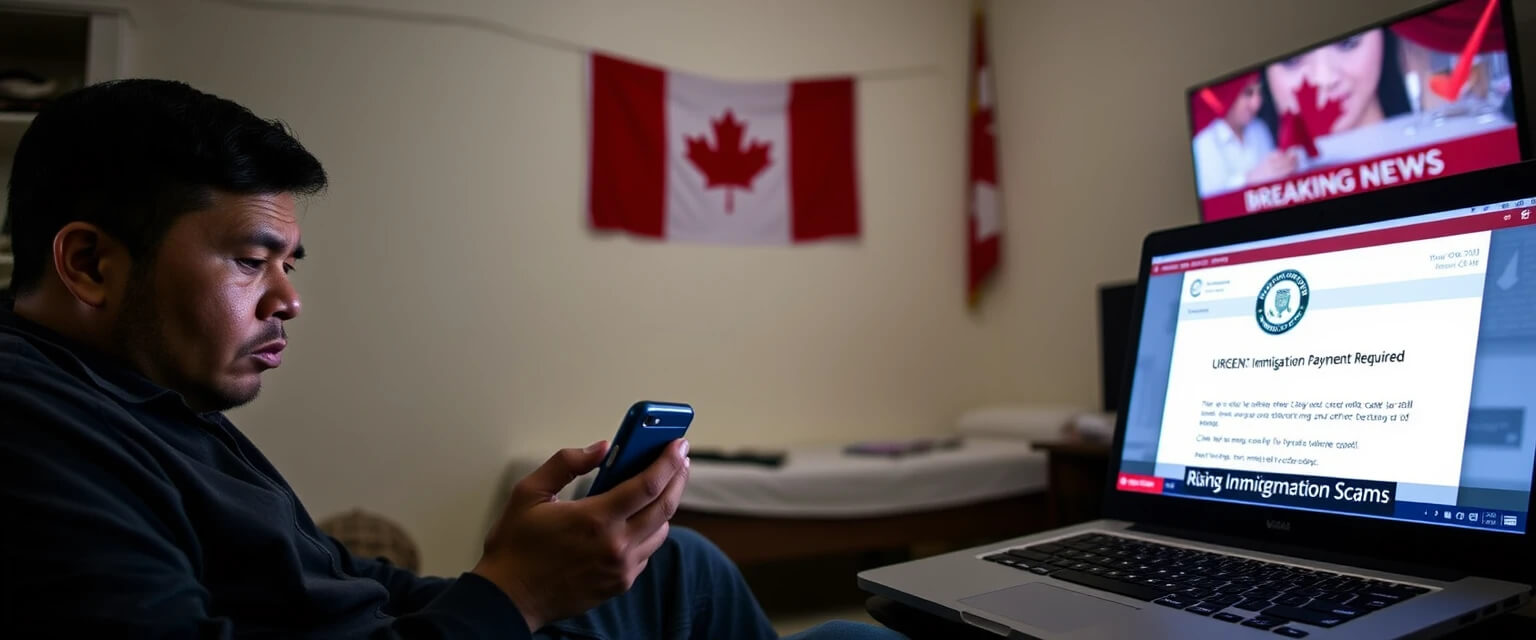Ottawa, September 5, 2025 – As Canada continues to welcome newcomers, the Government of Canada is raising awareness about fraud targeting those unfamiliar with local systems. The Immigration, Refugees and Citizenship Canada (IRCC) has outlined key information to help protect new residents from scams, emphasizing their rights under Canadian law and providing guidance on recognizing and reporting fraudulent schemes. Details are available on the official government website.
Newcomers to Canada may encounter various scams exploiting their unfamiliarity with government and business practices. Below are some of the most common frauds targeting newcomers, along with tips to stay safe.
Common Scams Targeting Newcomers
- Impersonation of Government Officials
Scammers may pose as IRCC staff or other government officials, contacting newcomers via phone or email with threats of deportation or loss of immigration status over alleged unpaid fees or improper paperwork. IRCC emphasizes that it will never threaten deportation for outstanding fees or demand personal information like a Unique Client Identifier (UCI) in such a manner. Be cautious of suspicious calls, even if the caller ID appears legitimate, as scammers can manipulate phone numbers. Report such incidents immediately. - Phishing Emails and Text Messages
Fraudsters may send emails or texts pretending to be from trusted sources, directing recipients to websites that request personal or banking information. Newcomers are advised never to click links or share sensitive details unless the sender’s identity is verified. Report phishing attempts to the appropriate authorities. - Computer Virus Scams
Scammers may claim a computer is infected and offer to “fix” it, aiming to steal passwords or private data. Only seek computer repairs from reputable professionals or use trusted antivirus software. Avoid granting remote access to unknown individuals and report such scams promptly. - Fake Prizes and Contests
Unexpected messages claiming a prize from an unentered contest are likely scams. Avoid responding to such texts, even to opt out, as this can confirm an active phone number to scammers. Instead, forward suspicious texts to 7726 (SPAM) to help block future messages and report the incident. - Tax Scams
Fraudsters may promise tax reductions or ineligible benefits, such as claiming credits for periods before arriving in Canada. These schemes can lead to serious consequences, including repayment of funds, penalties, fines, or jail time. Newcomers are responsible for ensuring their tax returns are accurate, even if prepared by a third party. Report suspicious tax-related communications immediately.
How to Protect Yourself
To safeguard against fraud, newcomers should remember:
- No one can guarantee a job, visa, or permanent residence. Only authorized immigration officers at Canadian embassies, high commissions, or consulates can issue visas.
- IRCC fees are standardized and based on official exchange rates. Payments are made online through official channels, not via personal bank accounts, prepaid cards, or services like Western Union or MoneyGram.
- IRCC will never threaten arrest or deportation for unpaid fees, offer special immigration deals, or use free email services (e.g., Hotmail, Gmail) to contact individuals.
Reporting Fraud
Newcomers are encouraged to report suspicious activities promptly:
- Report phishing, fake contests, or virus scams to the appropriate authorities.
- Suspicious calls or messages about immigration status or taxes should be reported via the IRCC’s fraud reporting channels.
By staying informed and vigilant, newcomers can protect themselves and others from fraud. For more information on recognizing and reporting scams, visit Canada.ca/protect-fraud-




Leave a Comment